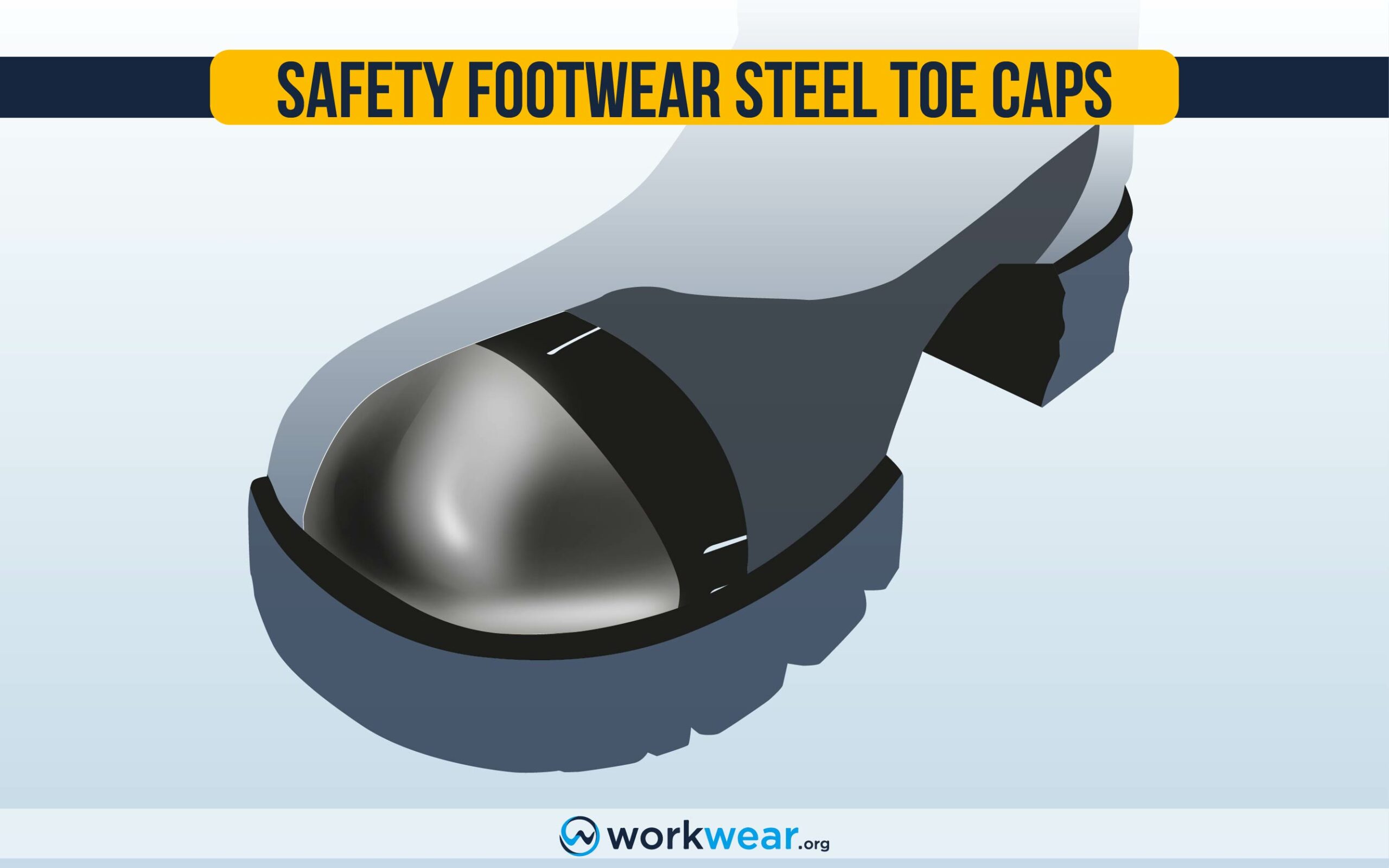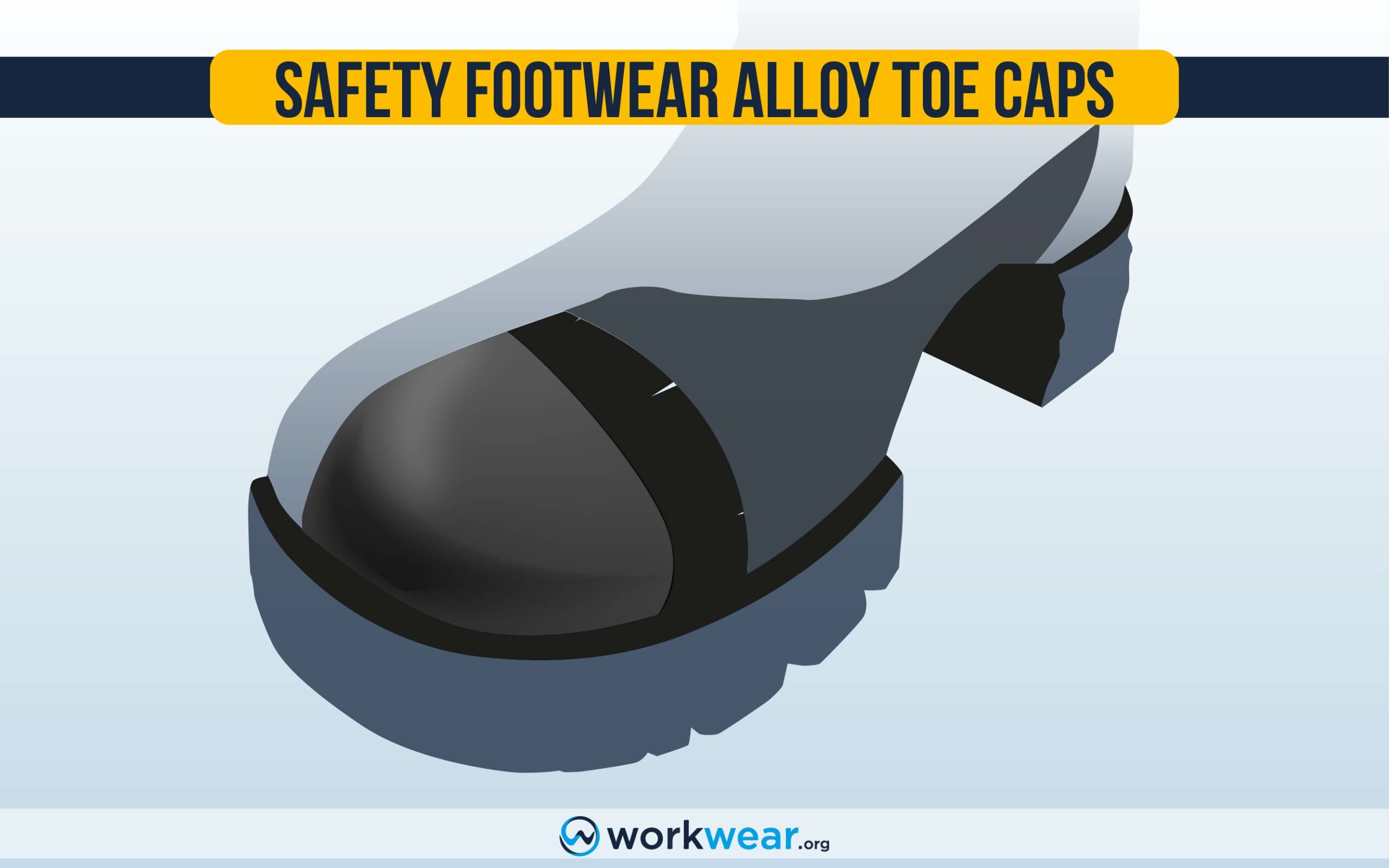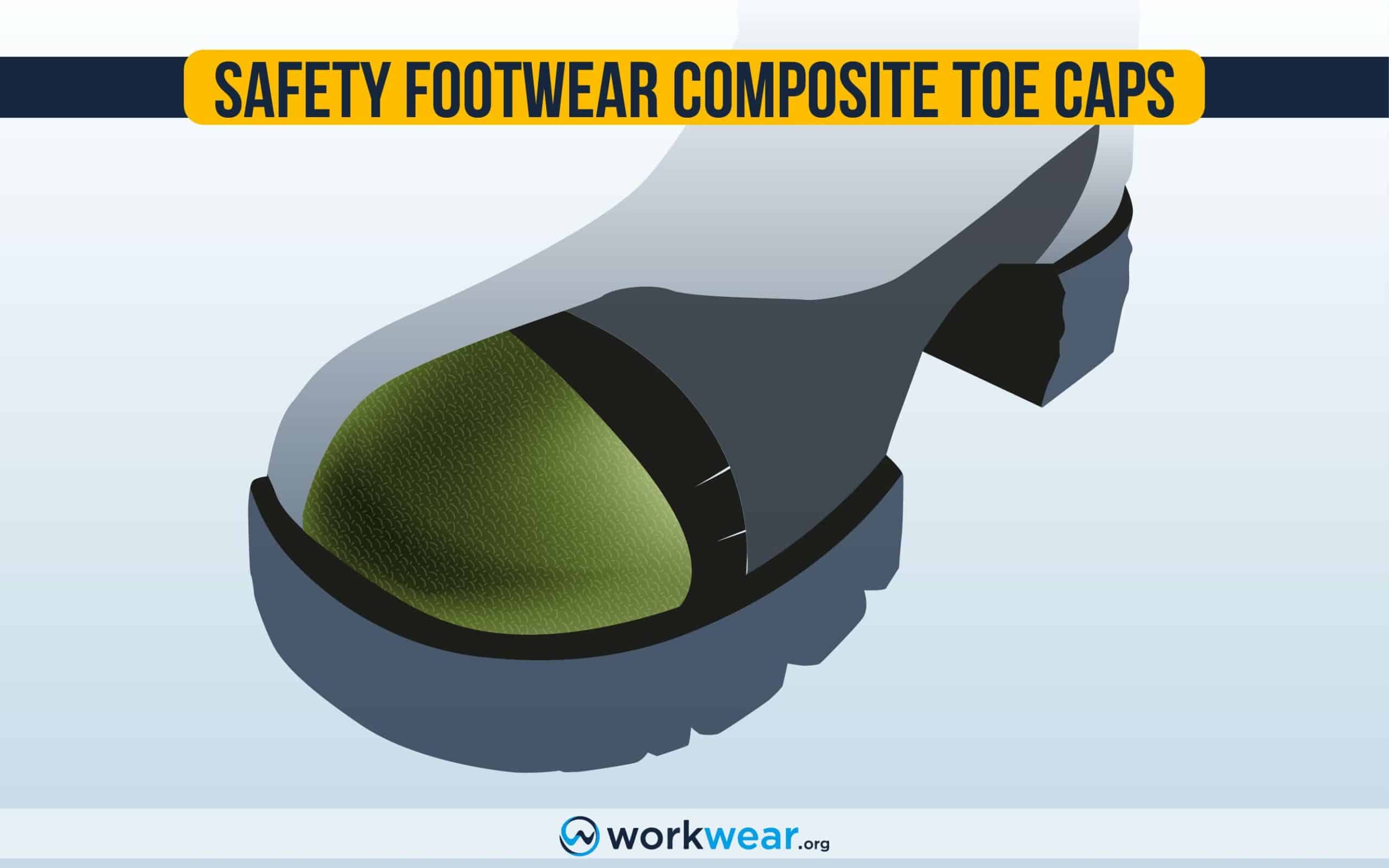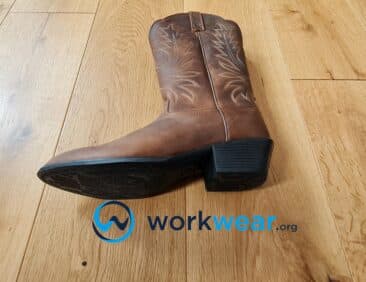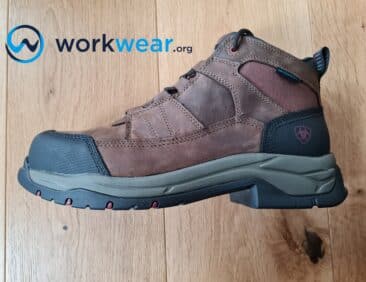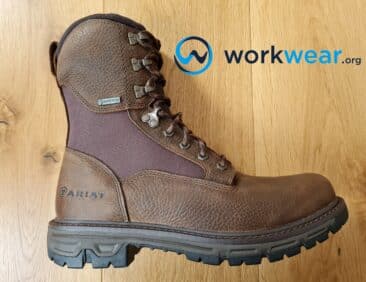Work Boot Safety Toe Caps – Explained & Demystified
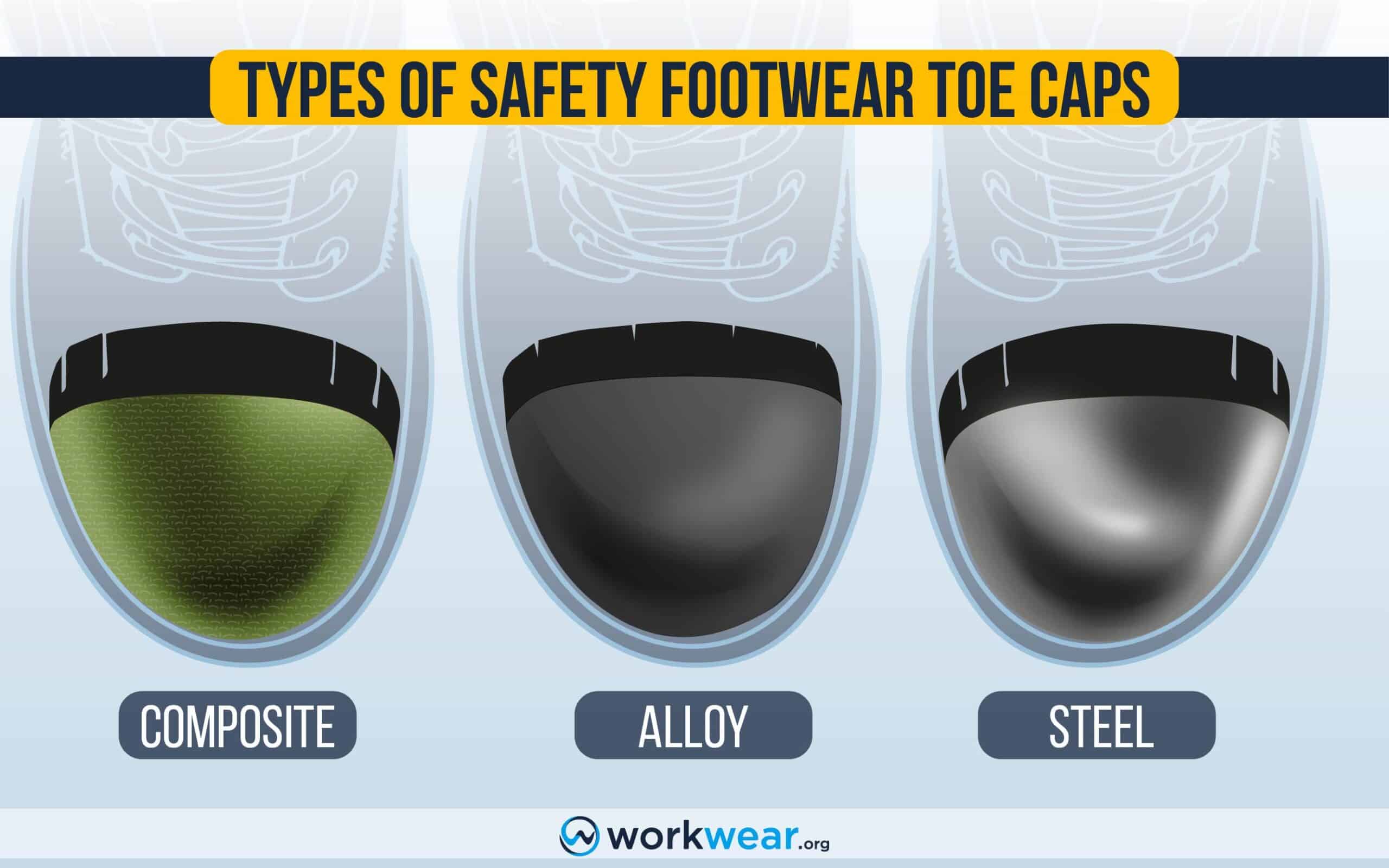
Safety gear is essential for keeping workers safe in settings where hazards can be encountered on a regular basis. Footwear with safety toe caps is required in work environments where there are risks of heavy items – such as pieces of equipment, machinery, or tools – dropping or rolling on the boot. Toe caps are fitted onto the front portion of the shoe or boot to reinforce this area, providing continuous protection against serious crushing injuries in case of exposure to impact and compression threats around the workplace. A safety toe cap is different from a leather toe cap found in non-safety footwear. The former is made from either steel, alloy, or a composite material and is fitted internally to provide foot protection against injuries, while the latter is made from the same material as the rest of the shoe and is placed outside the footwear to provide aesthetic benefits as it also offers protection from abrasions. We will discuss the different types of toe caps for safety footwear, so you’ll easily be able to see the pros and cons of each type. The best type will be the one that best suits your work requirements and personal preference, so taking a more thorough look at each option’s details can help you pick the smartest choice in the end.
Table of Content
Steel Toe Caps
Steel toe caps are the classic option most widely available and are often what people consider first when it comes to safety footwear. They offer the highest level of protection (out of all the options for toe caps) against heavy objects that can be dropped accidentally, maintaining foot safety against serious crushing injuries. Steel can withstand a high weight level of compression and impact so boots with steel toe caps are ideal for settings where there are high risks of heavy items – such as tools, machinery, bricks, or equipment – falling or rolling onto the boot, especially from elevated spots in the workplace. Steel-toed boots may be the best choice if you’re looking for safety footwear for immediate use, since they’re often readily available, with more brands offering steel-toed safety shoes or boots compared to composite or alloy toe cap options. High-quality steel toe caps are resistant to chemicals and corrosion, although the ones made with low-quality steel may be more susceptible to rust with long-term use. The accessibility of safety footwear with steel toe caps results in more choices with varying price points so you can more easily find the most affordable option or at least one that suits your budget.
The high level of protection offered by steel toe caps comes with its own set of drawbacks as well. Steel-toed boots are the heaviest among the options for safety boots, so they’re not ideal for jobs that require walking or standing for the better part of the day. Their heaviness will eventually weigh down on the feet, causing discomfort. Safety shoes with steel toe caps can also set off metal detectors – definitely not something you’d want if your job involves exposure to these detectors regularly. Steel is an excellent conductor of cold and heat, so steel-toed boots won’t protect your feet from being uncomfortably chilled when you’re working in cold environments. If you need to work in exceptionally cold conditions and the only option available is steel-toed shoes, look for insulated options or at least ones that have inner linings for increased foot comfort in the harsh surroundings.
Pros
- Excellent protection – high resistance against compression and impact
- Readily available/accessible
- Most affordable safety toe option
- Resistant to chemicals and corrosion
Cons
- Heaviest among safety toe caps
- Can set off metal detectors
- Can cause foot discomfort by conducting cold from the environment
Suitable for
- Construction sites and similarly harsh work settings that have impact and compression hazards
- Jobs that involve heavy machinery, tools, and equipment that can accidentally fall or roll on the foot
Alloy Toe Caps
Toe caps made from aluminum alloy deliver the same level of protection as steel toe caps but offer a more comfortable experience. This is because the alloy material is approximately 30-50% lighter than steel and even more lightweight than composite materials, making it ideal for professions that are exposed to the risks of heavy falling items while requiring continuous walking or standing for long hours at a time. The lighter weight of alloy toe safety shoes won’t cause feet discomfort because they won’t feel too bulky and heavy the way steel-toed boots will, even with extended use. The aluminum alloy material comes with a structure that’s considerably thinner than steel. This results in a roomier toe box that gives the toes the space needed to shift in place when needed so that toe cramps can be avoided. The low-profile structure of alloy toe caps makes them ideal for use in sneakers and safety shoes with athletic silhouettes since they aren’t bulky enough to interfere with the streamlined look of the footwear.
The major downside of alloy-toed safety shoes is that they’re more expensive than steel toe and composite toe footwear. This can be a significant issue if you’re looking for the lowest-priced safety footwear on the market. However, the higher price point of the alloy toe shoes can be fully justified by the increased comfort that can be enjoyed compared to wearing steel toe shoes. This benefit becomes even more magnified in jobs that involve all-day walking or staying on your feet when the higher cost of alloy toes will seem like a small price to pay for the enhanced comfort and prevention of extreme foot pain. Alloy toe footwear can also trigger metal detectors, so they may not be the most suitable choice for use in situations where you’ll regularly encounter these.
Pros
- Similar strength and protection as steel toe caps
- Thinner structure results in a roomier toe box
- More comfortable because the material is 30-50% lighter than steel
- More lightweight compared to composite toes
Cons
- More expensive than steel toe capped safety footwear
- Can trigger metal detectors
Suitable for
- Work environments that have high exposure to heavy items that can unintentionally drop on the foot
- Jobs that require safety boots and involve walking or standing all day long
Composite Toe Caps
Composite toe caps are crafted from non-metallic materials such as fiberglass, carbon fiber, Kevlar, or plastic. The non-metallic structure doesn’t conduct electricity, making it a safe choice for use in settings where there are risks of exposure to live electrical currents that can cause electrocution. However, it should be noted that there are also steel and alloy toe safety shoes that offer electrical hazard protection for increased safety in hazardous workplaces. The metal-free structure won’t trip metal detectors, so they’re ideal for jobs in security, airports, courts, and other settings where there’s constant exposure to these detectors. Composite toe caps are much lighter than steel, resulting in lightweight footwear that stays comfortable even when worn for long stretches of staying on your feet or walking since it doesn’t drag uncomfortably on the feet. The non-metallic materials don’t conduct cold and heat, so the footwear won’t conduct the coldness of a chilly environment, and also won’t get significantly warm when you’re in hot surroundings.
On the other hand, some disadvantages need to be taken into consideration when you’re eyeing composite toe cap shoes. Their materials don’t deliver the same outstanding protection and strength that can be expected from steel and aluminum alloy, so they’re not the best choices for use in work areas with high risk of heavy machinery, tools, or equipment falling from elevated spots. Composite toe safety shoes are more expensive than steel toe options, so they aren’t the best pick for those who are on a limited budgets or are looking for the most affordable safety shoe choice.
Pros
- Lighter than steel toe caps
- Doesn’t conduct electricity
- More affordable than alloy toe safety footwear
- Non-metallic – won’t trigger metal detectors
- Doesn’t conduct cold and heat – ideal for use in extreme temperatures
Cons
- Protection level not as strong as steel toes or alloy toes
- More expensive than steel toe capped safety footwear
- Heavier than alloy toe caps
Suitable for
- Environments exposed to electrical hazards
- Jobs that require long hours of walking around or standing
- Settings with harsh temperatures
Table of Comparison
| Toe Cap Material |
Pros |
Cons |
Uses |
|---|---|---|---|
| Steel |
|
|
|
| Aluminum (Alloy) |
|
|
|
| Composite |
|
|
|
Conclusion
Safety toe caps are important considerations when you’re looking for the best safety shoes or boots. These enhancements are designed to keep the foot protected from serious injuries in case objects are dropped on the footwear from elevated spots, enabling you to focus on your job without worrying too much about foot safety in the workplace. The safety toe caps come with their own set of benefits and drawbacks, and it’s important to thoroughly check these details so you’ll have the information you need to determine which choice will be most suitable for your work environment, budget, and personal comfort preferences.
FAQs
- Are steel toe caps as strong as alloy toe caps?
- Steel and alloy toe caps deliver the same level of strength and protection but have different attributes. They can both resist high levels of weight from impact and compression hazards to keep the feet protected against serious injuries. Alloy toe caps have the significant advantage of being more comfortable because they’re more lightweight than steel toes.
- Why are alloy toe safety shoes more expensive than steel toes?
- Alloy toe caps are made with materials such as aluminum and titanium that aren’t as abundantly available or as affordable as steel. The process that makes the alloy toe caps thinner and lighter than steel toes is a bit more extensive and contributes to a higher price point overall.
- What is the best safety toe cap choice?
- It depends on how and where you will use the safety footwear. Each choice has its own pros and cons as discussed above. In general, steel toe caps are best for harsh environments where there are high risks of heavy objects falling on the foot and for those looking for the most affordable option. Alloy toe caps are ideal for people who work in areas that are exposed to impact and compression hazards and are willing to shell out more (compared to the price of steel toe shoes) for a more comfortable experience, especially for situations that require long hours of walking or standing. On the other hand, composite toe caps are suitable for people who will benefit from non-metallic safety footwear – such as those working near metal detectors, in areas with electrical hazards, and in extreme temperature settings.
- What makes steel toe boots uncomfortable?
- A steel toe cap delivers excellent strength and resistance to impact or compression, but it also brings discomfort since its bulky structure results in a tighter toe box that can keep the toes cramped uncomfortably. The material also conducts heat and cold, so if you’re working in harsh environments, the extreme cold or heat from the surrounding area can easily seep into the shoe and cause foot discomfort.
678+
Products Reviewed
24+ Years
Combined Experience
500+ Hrs
Field Testing
